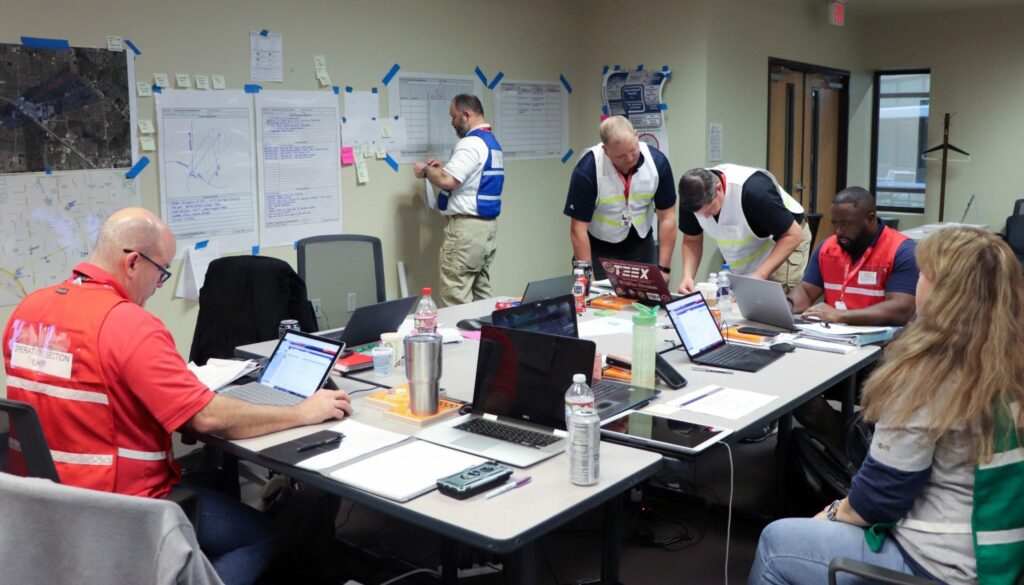CAPCOG’s Homeland Security Division has scheduled six training courses for emergency management and other public safety stakeholders between April and the end of June. A majority of the courses will take place at the CAPCOG offices, 6800 Burleson Road, building 310, suite 165 in Austin, and will cover topics such as emergency management planning, elements of incident response, and collaborating with the Austin Regional Intelligence Center (ARIC).
“CAPCOG hosts six to ten homeland security courses per year, but this year we are catching up from spikes in COVID-19 cases that kept emergency management departments busy,” said Martin Ritchey, CAPCOG homeland security director. “CAPCOG will be offering even more training courses this year as well as its regional exercise. These training opportunities provide the foundation and practice to improve planning for, responding to, and recovering from disasters.”
On April 11, CAPCOG will host the second of three U.S. Fire Administration All-Hazards Incident Management Team Introduction courses — the third will begin on June 20; the first took place in early February. The 40-hour course teaches the role public safety officials play during large or complex all-hazard incidents, such as Bastrop’s recent fires or the 2018 floods. A Threat Liaison Officer course led by ARIC will take place on April 19 and is meant for fire, EMS, and emergency management personnel to learn about the importance of sharing information and intelligence with the goal of deterring terrorism and multi-jurisdictional crimes versus taking a reactive approach. A second Threat Liaison Officer course, specifically for peace officers, is scheduled for June 14. On April 27, a two-day Threat and Hazard Identification and Risk Assessment and Stakeholder Preparedness Review course will teach emergency management personnel how to identify and give context to community specific threats, hazards, and their targets. The course demonstrates how to assess current response and mitigation capabilities for those targets as well as to identify capability gaps and strategies for closing them. A Rapid Needs Assessment Course is scheduled for May 11. It will educate local public safety, emergency management, and elected officials about conducting and documenting community needs in the immediate aftermath of a disaster.
As CAPCOG prepares for its 2023 regional exercises, that will focus on cybersecurity threats, it will offer training focused on technology preparedness and securing supply chains. Emergency management and other public safety officials can find training opportunities at training.capcog.org/by-topic/homeland-security.




